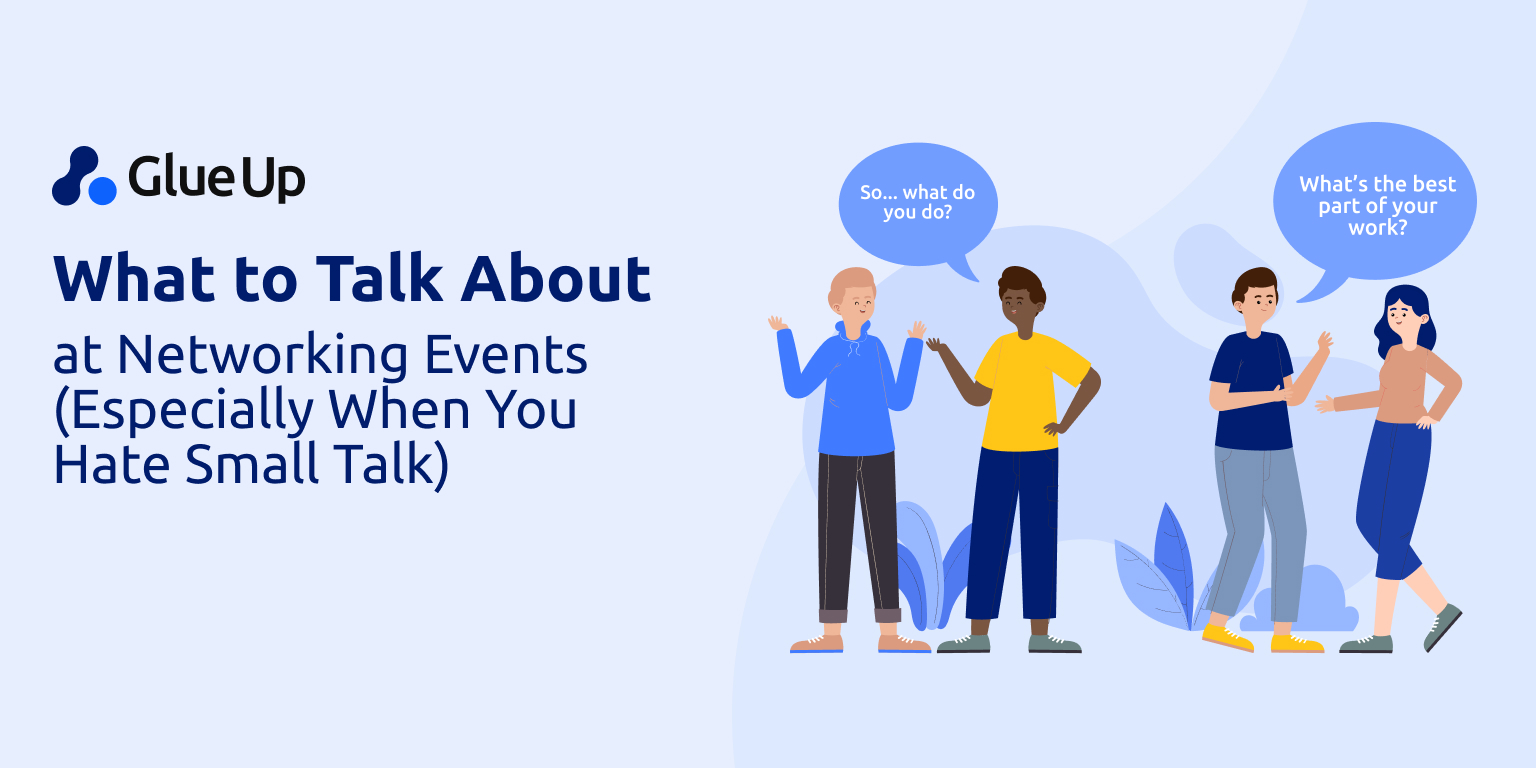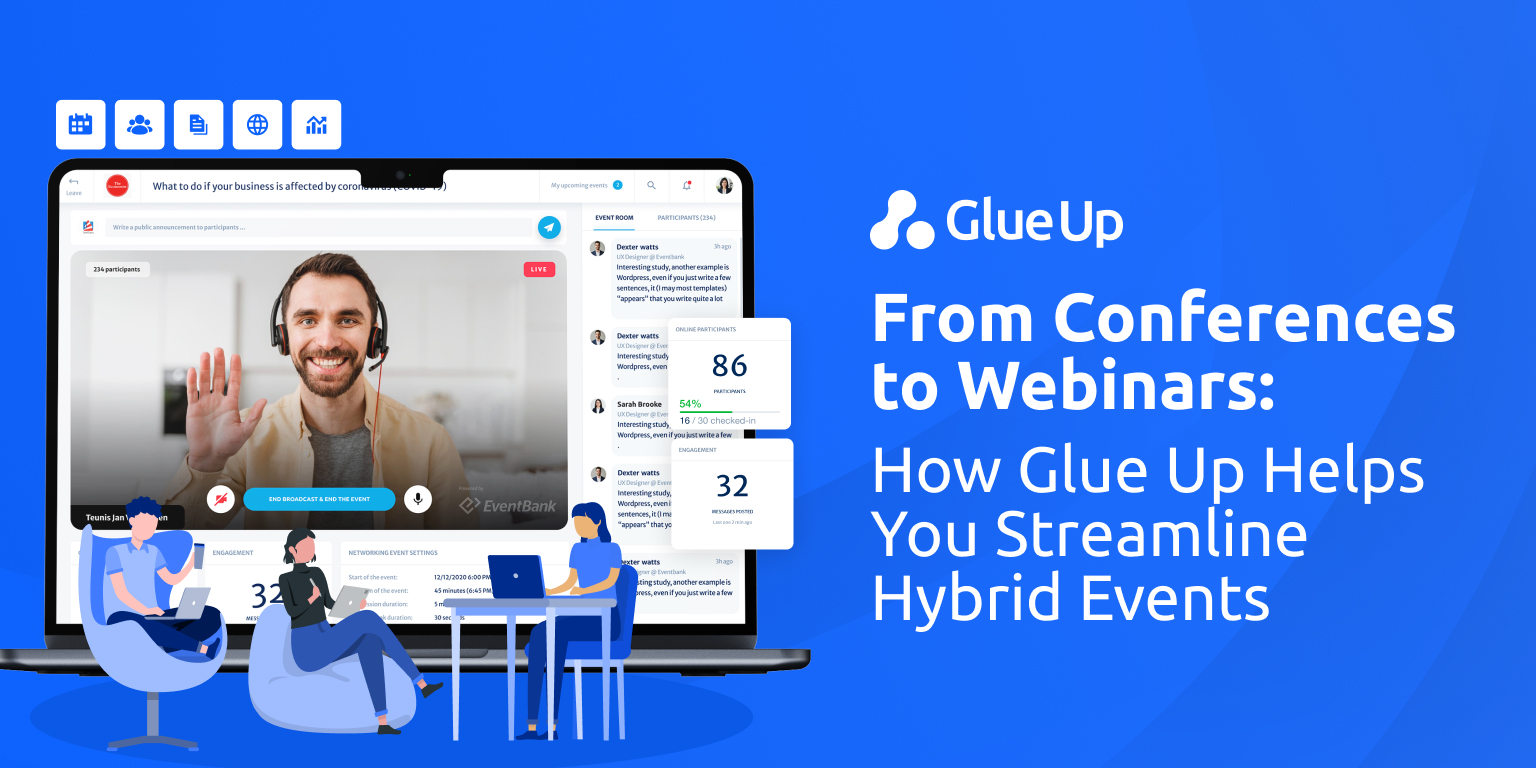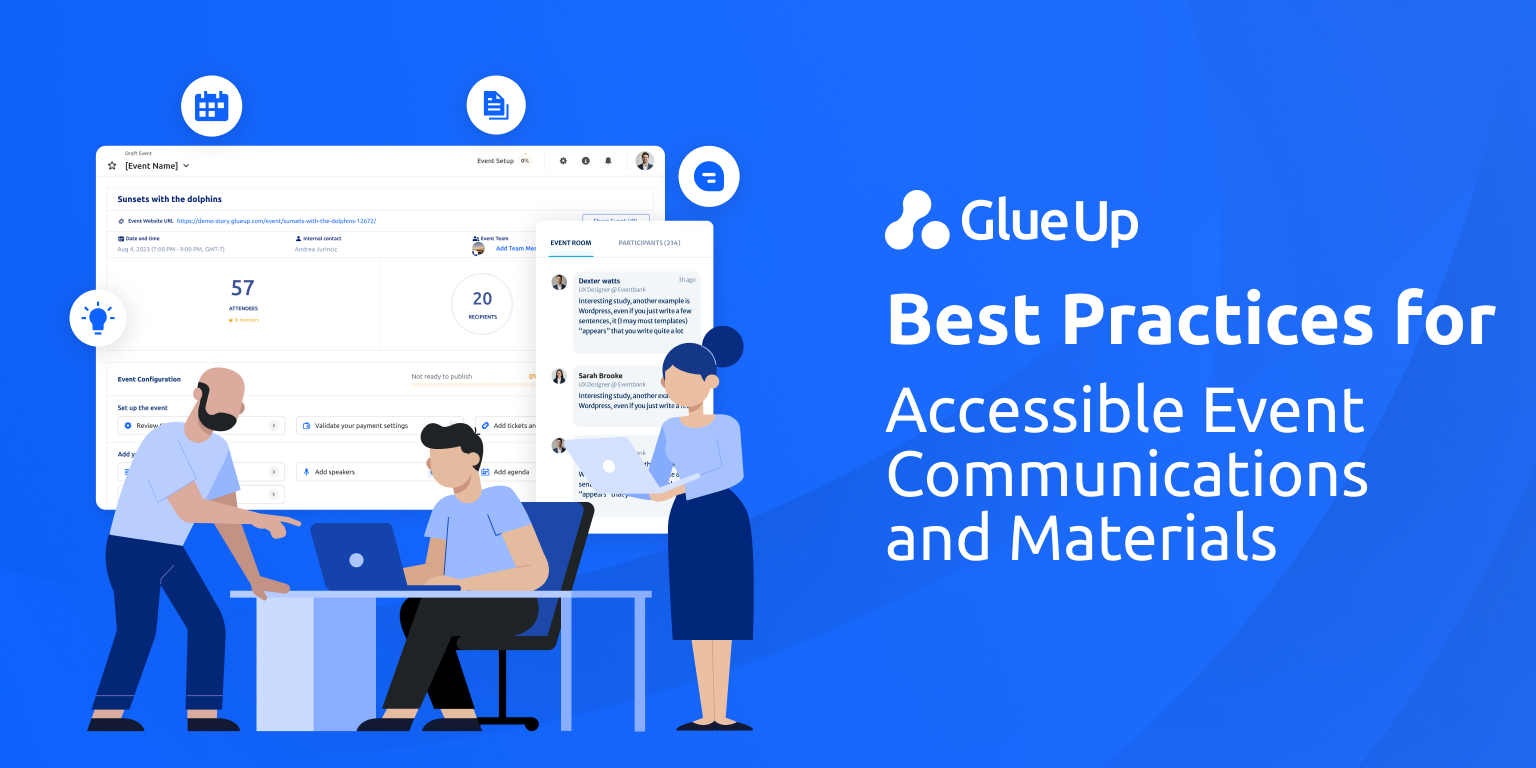
Networking events can feel like a necessary evil, especially for those who dread small talk. If you find yourself struggling to keep conversations going or avoid the usual surface-level exchanges, you're not alone. Small talk often leads nowhere and can feel draining, leaving you feeling disconnected rather than engaged.
However, networking doesn't have to be awkward or unproductive. By shifting the conversation from shallow small talk to meaningful discussions, you can create lasting connections that benefit both parties. In this blog, we’ll explore how you can transform networking into a rewarding experience by focusing on topics that spark real conversations.
The Power of Meaningful Conversations
Why Small Talk Doesn’t Work for Everyone
Small talk is often the default mode of conversation at networking events, but it doesn’t always help build genuine connections. Topics like the weather or the most recent weekend plans can feel forced and superficial.
While these conversations serve as icebreakers, they rarely lead to deeper understanding or meaningful relationships.
For many, engaging in small talk can feel uncomfortable or even inauthentic. It’s hard to connect with someone over trivial subjects, and it can leave both people feeling like they haven’t accomplished much from the interaction.
Small talk may fill time, but it often fails to create lasting bonds or spark interest.
Benefits of Moving Beyond Small Talk
Moving away from small talk can lead to more rewarding networking experiences. When you engage in meaningful conversations, you’re more likely to:
- Build stronger connections: Deep topics allow both people to learn more about each other, creating a foundation for future interactions.
- Establish trust quickly: When you talk about passions, challenges, or ideas that matter, you show authenticity, which can quickly earn trust.
- Create memorable interactions: Conversations that go beyond the basics leave a lasting impression, making you stand out among others.
Focusing on these deeper topics can help you find that networking events can become opportunities to truly connect and form relationships that go beyond surface-level exchanges.
Topics to Discuss at Networking Events
Ask About Personal Projects or Passions
One great way to break away from small talk is to ask people about their personal projects, hobbies, or passions. These topics often lead to richer conversations because they give people the chance to share what excites them beyond their job title. It also shows that you’re genuinely interested in the person as a whole, not just their professional life.
Here are a few questions you can ask to spark a deeper conversation:
- “What’s something you’ve worked on recently that really excited you?”
- “Do you have any personal projects or side hustles you’re passionate about?”
- “What’s a hobby or interest of yours that people might not know about?”
Talking about personal interests helps build rapport and leads to meaningful connections that are far more memorable than typical small talk.
Share Industry Trends and Insights
Discussing industry trends or new insights is another excellent way to keep the conversation engaging and relevant. Most professionals love to talk about the latest developments or challenges they’re facing in their industry. This not only shows that you’re informed but also positions you as someone who cares about the industry’s future and is willing to engage in thought-provoking discussions.
Example question:
- “What do you think about the latest changes in our industry?”
- “Have you seen any trends that are going to shake up how we do business in the next few years?”
These conversations give you both a chance to discuss shared experiences and perspectives, creating a stronger bond.
Discuss Recent Books, Podcasts, or Articles
Talking about what you've recently read or listened to is a great way to transition into a deeper conversation. Books, podcasts, or articles related to your industry or personal development can give you a lot to discuss. Sharing recommendations or thoughts on a particular book or podcast can lead to a back-and-forth that’s both informative and engaging.
Example question:
- “Have you read any books lately that you think everyone in our field should read?”
- “What podcast have you been listening to that offers insights or advice in your field?”
These conversations allow both individuals to engage with intellectual content that benefits their professional and personal growth, fostering a more meaningful connection.
Quick Reads
- AI-Powered CRM in Membership Management
- Partnership vs Sponsorship: What’s Best for You?
- How AI is Revolutionizing Event Planning
- Comparing the Best Association Management Software
- Transform Your Financial Management with Tools
- How to Promote Membership in the Most Effective Ways
How to Keep the Conversation Flowing
Listen Actively
One of the most important skills in networking is active listening. Instead of focusing on what you're going to say next, give the other person your full attention. This shows that you value what they're sharing and creates a more comfortable environment for deeper conversations.
By being truly engaged, you can ask follow-up questions or add meaningful insights, making the conversation flow naturally.
Tips for active listening:
- Nod or use short verbal cues like “I see” or “That’s interesting” to show you’re engaged.
- Paraphrase or summarize their points to show that you’re listening and to clarify any misunderstandings.
- Ask follow-up questions based on what they say to keep the conversation going.
Offer Genuine Compliments
Offering genuine compliments is another way to keep the conversation flowing and create a positive atmosphere. Complimenting someone’s work, insights, or even their approach to a problem shows that you’re not just focused on talking about yourself. It helps build rapport and encourages the other person to open up further.
Example:
- “I really like how you approached that problem at the conference yesterday. It’s something I’ve been thinking about as well.”
- “That’s a great perspective! It’s refreshing to hear someone talk about it from that angle.”
Focusing on the person’s strengths and contributions creates a more engaging and positive conversation that both of you will remember.
Transitioning to Professional Topics Naturally
Smoothly Steer the Conversation to Work
While it’s great to discuss personal interests and passions, networking events are also an opportunity to connect professionally. Transitioning the conversation to work-related topics doesn’t have to be awkward. The key is to find natural bridges between personal topics and your professional world.
Example transition:
- "That’s really interesting! How does that relate to what you're doing professionally?"
- "It sounds like your side project ties into your work. How does that play a role in your day-to-day?"
Making these smooth transitions can help you naturally steer the conversation towards professional topics that can help you explore potential business opportunities or collaborations without making the shift feel forced.
Know When to End the Conversation
Knowing when to wrap up a conversation is just as important as keeping it going. Ending it on a positive note ensures that both parties feel good about the interaction and can lead to future connections. A great way to exit is by showing appreciation for the conversation and suggesting a way to stay in touch.
Example:
- “It was great talking to you! I’d love to follow up on this topic. How about we connect on LinkedIn?”
- “I really enjoyed our chat. I’ll send you an email later so we can explore this further.”
A graceful exit leaves the door open for future conversations while ensuring that you’ve made a lasting impression.
Create a More Connected and Engaged Community Today
The Glue Up Event Management Software not only helps associations foster real-time engagement through continuous interaction but also streamlines every aspect of the event management process. Be it planning, promoting, or executing online or offline events, the platform provides an all-in-one solution that boosts productivity and enhances the overall experience for attendees.
The software’s features, such as event website builders, custom registration forms, and seamless payment integration, simplify the event process while ensuring maximum engagement. With the added benefit of a mobile app for both administrators and attendees, managing events from anywhere becomes effortless.
Using Glue Up, your association can create personalized, branded events that are optimized for success. The software allows you to manage multiple events, monitor live engagement, and collect insights in real-time, all while improving member retention through personalized communication and networking features.
Ready to take your association’s engagement and event management to the next level? Book a demo today to explore how Glue Up can help you run successful events and build a more connected, engaged, and loyal community!



